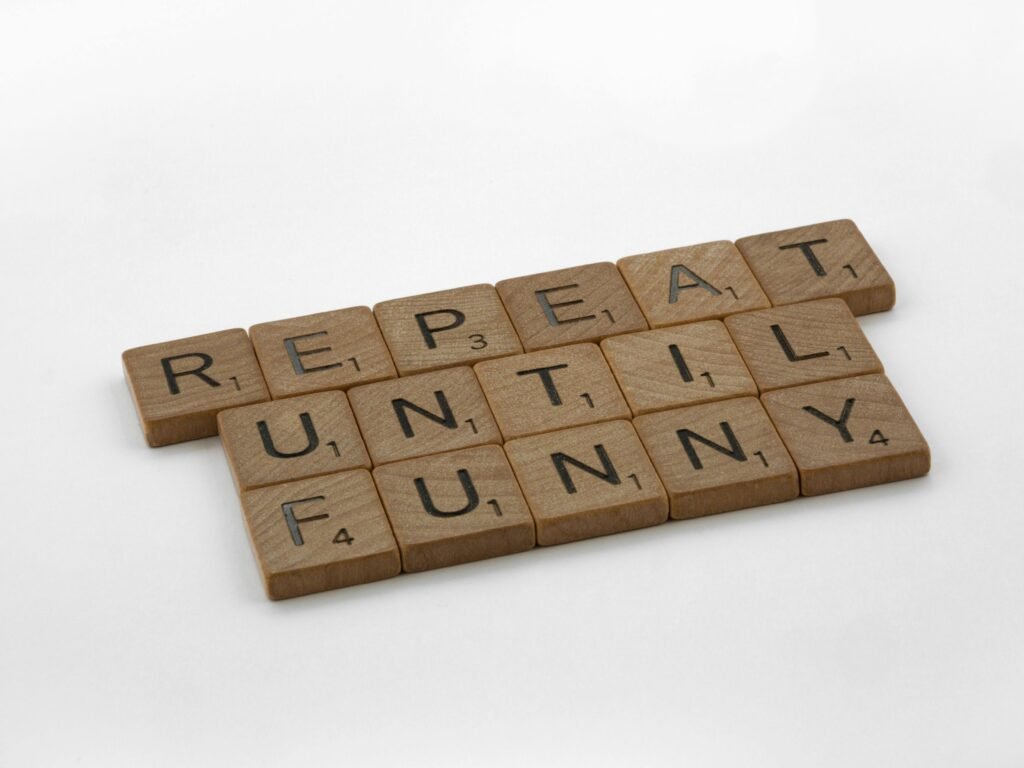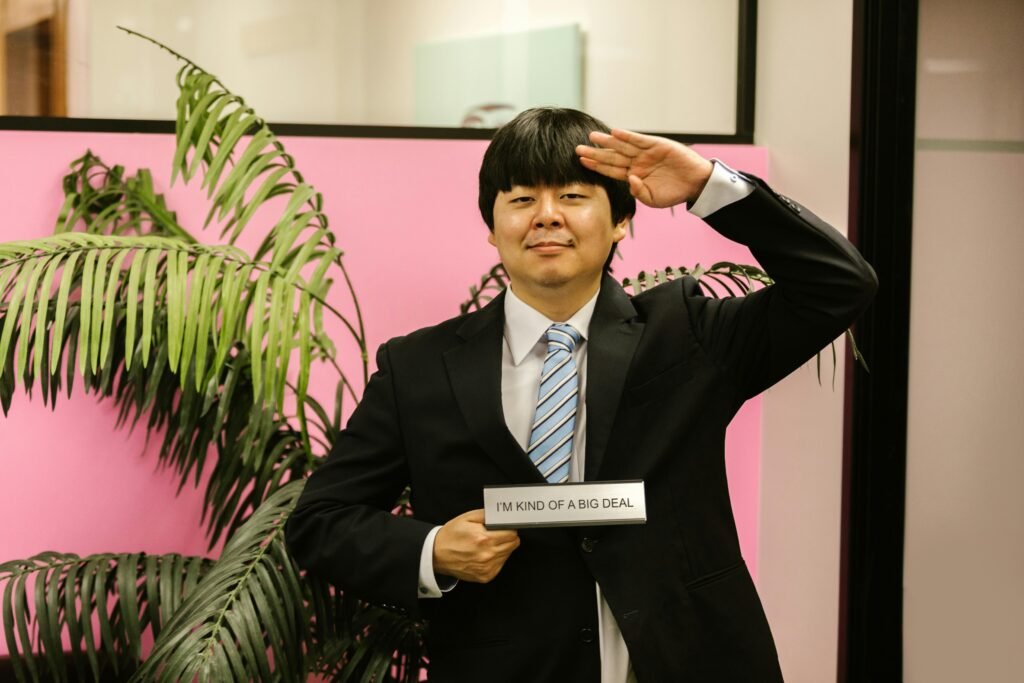
Introduction to Humor Types
Humor is a vital component of human interaction, often acting as a bridge that connects us in both light-hearted and profound ways.
It helps us navigate social landscapes, making difficult conversations easier and joyous moments even more memorable.
However, not all humor is created equal, and the way we use it can have varied impacts on how we are perceived by others.
When it comes to humor, self deprecating jokes and pride jokes represent two different approaches.
Self-deprecating humor involves making oneself the butt of the joke, highlighting personal flaws or mishaps in a way that can be endearing or relatable.
For instance, someone might joke about tripping over their own feet while trying to dance, making them appear humble and approachable.
However, there’s a fine line, and this kind of humor can sometimes be viewed as a plea for reassurance.
Pride jokes, on the other hand, involve a more subtle way of boasting, often combining humor with self-praise.
This type of humor, sometimes known as humorbragging, can come off as witty and confident.
An example might be joking about how one’s incredible multitasking skills resulted in accidentally brewing coffee without adding water.
While this can make the person seem accomplished and competent, there’s always a risk of crossing into arrogance if not done carefully.
Understanding these types of humor is not just about recognizing their definitions but also about appreciating the psychological underpinnings that motivate their use.
Self-deprecating humor can be a strategic way to appear more relatable or to preempt criticism.
It’s a tactic that can make us seem more human and less intimidating.
Conversely, pride jokes can serve to highlight one’s abilities and achievements in a way that feels more palatable than straightforward bragging.
They can create a persona of competence wrapped in a cloak of humor.
Both types of humor require a keen sense of timing and audience awareness.
In professional settings, pride jokes can be useful for highlighting accomplishments without seeming overly boastful, provided they are well-received.
Meanwhile, self-deprecating jokes can be effective in casual settings where the goal is to build rapport and ease social tension.
The choice between these humor types often depends on the context and the intended outcome, whether it’s to appear more relatable or to subtly showcase one’s strengths.
Self Deprecating Jokes

Self deprecating jokes are those in which individuals make fun of themselves, often highlighting their shortcomings or embarrassing moments.
For example, a person might joke about their lack of cooking skills after burning a simple meal.
While these jokes can endear us to others by making us seem relatable and humble, they can also be perceived as fishing for compliments.
Some people might see self deprecating humor as a way to solicit reassurance or validation from others, subtly seeking to hear that they are not as flawed as they claim.
At their best, self-deprecating jokes can make us more approachable and help diffuse potentially awkward situations.
They can create an atmosphere of shared humanity, showing that we all have our quirks and imperfections.
When someone jokes about their tendency to forget names or their struggle with technology, it can be comforting for others who have similar experiences.
This type of humor can build bonds and make social interactions smoother and more enjoyable.
However, the flip side is that overusing self deprecating humor can lead to unintended consequences.
If someone frequently makes jokes about their incompetence or flaws, others might start to believe those assessments are accurate.
This can undermine one’s credibility and affect how others perceive their abilities.
For example, a person who constantly jokes about being bad at their job might find colleagues doubting their competence, even if they are actually quite skilled.
Additionally, there’s the risk of appearing insincere.
If the self-deprecation feels forced or exaggerated, it can come off as a ploy for attention or affirmation.
People might start to feel that the individual is fishing for compliments, which can be off-putting.
Genuine self-deprecating humor should come from a place of authenticity rather than a need for external validation.
It’s also important to consider the context in which self deprecating jokes are made.
In professional settings, too much self deprecation can hinder one’s career prospects.
For instance, a manager who frequently jokes about being disorganized might find it hard to inspire confidence in their team.
On the other hand, a well-placed self deprecating joke in a casual social setting can break the ice and make others feel more comfortable.
Ultimately, the key to effective self deprecating humor is balance.
It’s about being able to laugh at oneself without diminishing one’s own value or seeking constant reassurance.
By using this type of humor judiciously, we can foster connections and navigate social landscapes with greater ease and authenticity.
Pride Jokes Explained

Pride jokes, or humorbragging, as it’s sometimes known, are a blend of humor and boasting.
These jokes highlight one’s achievements or attributes in a light hearted way.
For instance, someone might quip, “I’m so good at procrastinating; I put it off for days!”
While these jokes can be clever, they walk a fine line; some people might see them as a cover for arrogance.
To illustrate, imagine someone saying, “I guess I’m just too efficient—I finished that huge project in half the time!”
This could be interpreted as either a witty comment or a veiled brag, depending on the delivery and the audience’s perception.
Humorbragging often combines self-praise with a dose of humor, making it more palatable than outright boasting.
For example, “I’m so organized that my to do list has its own to do list” subtly highlights one’s organizational skills while still being amusing.
This kind of joke can make someone seem both capable and approachable, provided it doesn’t come off as self-important.
One reason humorbragging can be effective is that it mixes competence with a touch of humility.
It allows people to showcase their abilities in a way that feels less direct and more engaging.
This can be particularly useful in professional settings where self promotion is necessary but overt boasting is frowned upon.
By couching achievements in humor, individuals can highlight their strengths without seeming overly proud.
Yet, it’s crucial to gauge the audience and context when using pride jokes.
What might be funny and well received in one setting could be interpreted as arrogance in another.
The effectiveness of humorbragging relies heavily on delivery, timing, and the audience’s perception of the intent behind the joke.
Psychological Perspectives

Understanding the psychological motivations behind different types of humor can illuminate why people choose to use them.
Self-deprecating humor can be a strategic choice to make oneself appear more approachable and relatable.
It might also be a defensive tactic, used to beat others to the punchline about one’s perceived flaws.
On the other hand, pride jokes can stem from a desire to appear both competent and personable.
Research shows that humorbragging can make candidates seem warmer and more competent, which positively affects how they are perceived in hiring situations.
This combination of warmth and competence boosts hiring intentions and can set candidates apart from those who use more straightforward self-promotion.
Both self-deprecating and pride humor have their roots in deeper psychological needs.
Self-deprecating humor can serve as a buffer against potential criticism.
By openly acknowledging one’s own shortcomings, an individual can control the narrative around their perceived flaws.
This tactic can create a sense of vulnerability that draws others in, making the humorist seem more human and relatable.
On the flip side, pride jokes allow individuals to highlight their strengths in a socially acceptable manner.
People often walk a tightrope between wanting to showcase their abilities and fearing that overt self promotion will be off-putting.
Humorbragging, or blending humor with self praise, offers a way to navigate this balance.
It serves to showcase competence while maintaining a light hearted tone.
The context in which these jokes are used plays a crucial role in their effectiveness.
In a relaxed, social environment, self deprecating jokes can quickly build rapport and ease social tensions.
However, in a professional setting, an overreliance on self deprecation can backfire, potentially leading colleagues or superiors to undervalue one’s capabilities.
On the other hand, pride jokes, when used sparingly and appropriately, can enhance one’s professional image by subtly highlighting one’s skills and achievements without coming off as boastful.
Audience perception is another key factor.
A joke that is well-received by one group might fall flat or be misinterpreted by another.
Social Impact of Humor

The jokes we choose to tell can significantly influence our social interactions, shaping how others perceive us and how we connect with them.
Self deprecating jokes often serve as a tool for building rapport and easing social tensions.
When someone jokes about their own clumsiness or forgetfulness, it can make them seem more approachable and relatable, creating a sense of shared humanity.
However, these jokes can also have a downside; if overused, they may lead others to genuinely underestimate one’s abilities and competence.
On the flip side, pride jokes, also known as humorbragging, combine humor with subtle self-praise.
This type of humor can be particularly effective in professional settings.
For instance, a candidate who humorously highlights their multitasking skills might stand out more positively to recruiters.
Similarly, entrepreneurs who included humorbragging were more likely to receive offers from investors.
This indicates that pride jokes can effectively convey competence and confidence without coming across as overtly boastful.
While pride jokes can enhance perceptions of competence, there’s a delicate balance to maintain.
If the humor comes off as too self important, it risks alienating others.
The delivery and context are crucial in ensuring that the joke is received as intended.
For example, joking about one’s organizational skills in a light hearted manner might be well received in a professional setting, but could be seen as bragging in a more casual, social context.
Both types of humor—self-deprecating and pride—require careful consideration of the audience and setting.
In a casual social environment, self deprecating humor can help break the ice and foster connections.
However, in a professional context, over-reliance on self-deprecation might cause colleagues or superiors to undervalue one’s capabilities.
Conversely, pride jokes, when used appropriately, can effectively highlight one’s strengths and achievements, enhancing professional image.
The way humor is used can shape our social dynamics and professional relationships.
Balancing Humor Types

Balancing humor types is crucial for making positive impressions and building strong relationships.
In both personal and professional settings, how we use humor can influence others’ perceptions and the dynamics of our interactions.
To find this balance, it’s essential to consider both the context and your audience.
In professional environments, pride jokes can effectively highlight your skills and accomplishments.
For instance, saying something like, “I’m so good at managing projects, I managed to organize my chaos,” can subtly showcase your organizational skills while maintaining a light-hearted tone.
However, it’s vital to gauge the audience’s reaction.
Overusing pride jokes can risk coming across as boastful, which might alienate colleagues or superiors.
Aim to intersperse these with moments of genuine humility to maintain a balanced image.
On the flip side, self deprecating humor can make you seem more relatable and approachable.
Jokes about minor personal flaws or mishaps can humanize you, making others feel more at ease.
For example, quipping, “I once tried to make a simple salad and ended up setting off the smoke alarm,” can create a shared moment of laughter. However, moderation is key.
Excessive self deprecation might lead others to undervalue your capabilities, especially in a work context where competence is crucial.
Striking the right balance involves being attuned to the nuances of each situation.
In casual settings, where the atmosphere is more relaxed, you might lean more on self-deprecating humor to build rapport quickly.
But even here, mixing in some pride jokes can help others see your strengths without feeling like you’re bragging.
Timing is another critical factor.
A well-timed self-deprecating joke can diffuse tension and make a challenging situation more manageable.
Conversely, a pride joke delivered at the right moment can boost your credibility and highlight your competence.
Observing how others respond to your humor can guide you in adjusting your approach for better resonance.
Listening is equally important.
Pay attention to the humor styles of those around you.
If they respond well to light-hearted banter, pride jokes might be more acceptable.
If they prefer a more modest approach, self deprecation might be more fitting.
Tailoring your humor to the preferences and sensitivities of your audience demonstrates emotional intelligence and can enhance your connections.
Remember, the goal is not to fit neatly into one type of humor but to blend both in a way that feels authentic to you.
By being mindful of context, timing, and audience, you can use humor to navigate social landscapes effectively, making your interactions both enjoyable and impactful.
Conclusion

The line between pride and arrogance in jokes is indeed thin, yet navigating it successfully can enrich our social interactions and personal relationships.
By being mindful of how we use humor and its potential impact, we can choose our words more wisely.
Whether using self deprecating humor to relate to others or pride jokes to highlight our strengths, we should aim to reflect on how these choices affect our self perception and the perceptions of those around us.
Understanding the nuances of self deprecating and pride humor allows us to use them more effectively.
It’s about knowing when to be light hearted about our flaws and when to confidently share our strengths with a touch of humor.
This balance can help us build rapport, gain respect, and foster genuine connections.
Reflect on the settings in which you use these types of humor.
In professional settings, a well-placed pride joke can underscore your capabilities without coming across as boastful, provided it’s delivered with the right tone and timing.
Meanwhile, in social settings, self deprecating humor can make you more approachable, helping to build bonds and ease tensions.
It’s also crucial to consider the audience.
Different groups may respond differently to various types of humor, so being attuned to their reactions can guide your approach.
A joke that might be a hit with friends might not have the same effect in a professional meeting.
Another key aspect is authenticity.
Humor should feel natural and not forced.
Authenticity in humor not only makes it more effective but also ensures it is received well.
When jokes come from a genuine place, they resonate more deeply, making your interactions more meaningful.
Balancing self-deprecation and pride jokes isn’t just about social strategy; it’s also about self-awareness.
Knowing your strengths and acknowledging your weaknesses in a humorous way can demonstrate confidence and humility.
This balanced approach can enhance how others perceive you and how you feel about yourself.
In conclusion, the thoughtful use of humor can be a powerful tool in our social toolkit.
By balancing self deprecating and pride jokes appropriately, we can navigate social landscapes more effectively, fostering connections and creating positive impressions.
This empathetic and mindful approach to humor can enhance both our personal and professional relationships, making our interactions more fulfilling and enjoyable.
